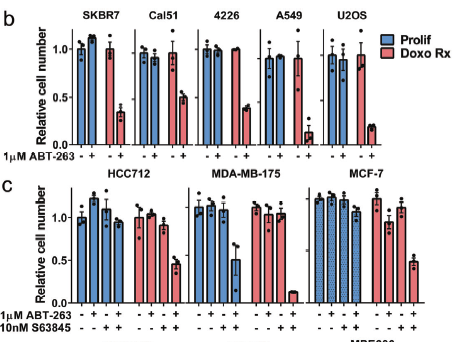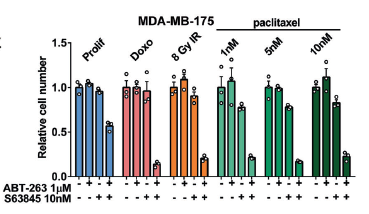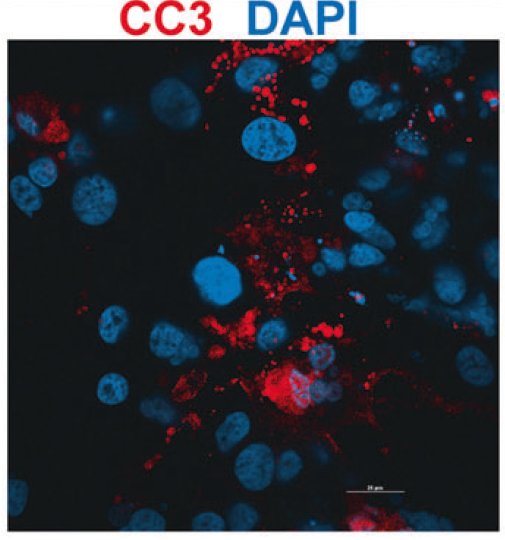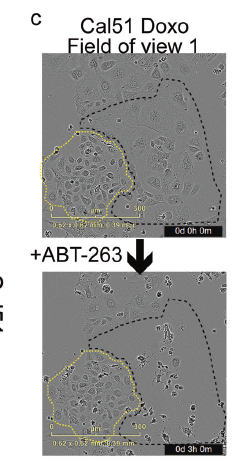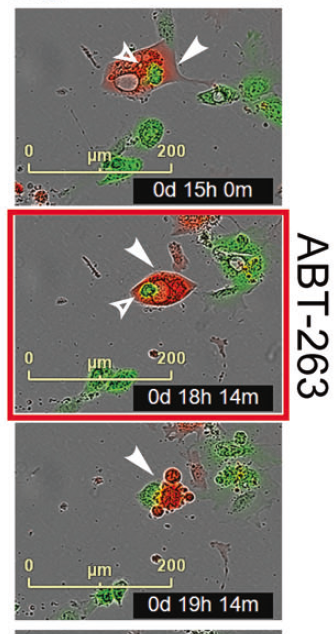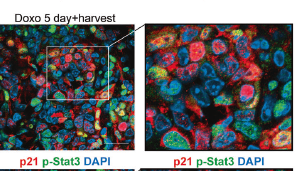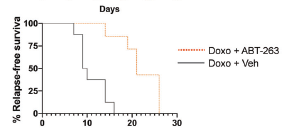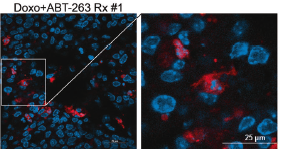Congrats to @Thesrao and @ashkanshahbandi for a lot of hard work and equal 1st author contribution to our recently published paper
https://rdcu.be/b4pS4
https://rdcu.be/b4pS4&quo... href="https://twitter.com/nresearchnews">@nresearchnews
@cddpress
1/
https://rdcu.be/b4pS4
@cddpress
1/
We previously found that patients w/ TP53 wild type breast cancers have poor survival and chemo treated tumor cells enter senescence and adopt a cannibalism phenotype to persist in residual disease
https://rdcu.be/b4p9L
https://rdcu.be/b4p9L&quo... href=" https://rupress.org/jcb/article/218/11/3827/120917/Chemotherapy-induced-senescent-cancer-cells-engulf#.Xs2T8mLls7Y.twitter
2/">https://rupress.org/jcb/artic...
https://rdcu.be/b4p9L
2/">https://rupress.org/jcb/artic...
here, we show that some of these senescent, TP53 wild type tumor cells can be killed by a senolytic drug ABT-263 that inhibits BCLXL, but some cells require a 2nd drug to also hit MCL1, a key finding by @thesrao 3/
sensitivity to senolytics can be induced by other treatments too, such as IR, Taxol, even Nutlin. nice work by @Aurelia44144 4/
massive apoptosis and cleaved caspase 3 is induced only in senescent cells, shown on scope by @ashkanshahbandi 5/
cells with senescent morphology are killed (black outline), but emergent, non senescent cells are spared (yellow) @ashkanshahbandi 6/
Further work showed BCLXL was responsible for keeping some senescent cells from undergoing apoptosis, and some could rely on BCLXL or MCL1 (gotta hit & #39;em both) 8/
Noxa (PMAIP1) expression dictated whether cells required the MCL1 inhibitor drug, if NOXA was high, you only need to inhibit BCLXL. 9/
MMTV-Wnt1 tumors in mice that were senescent, expressing p21 and pStat3 after chemo treatment... 10/
although, we wish we would have gotten complete tumor eradication... working on it... might have some ideas already... There& #39;s lots more in this paper. Check it out.
fin/
fin/

 Read on Twitter
Read on Twitter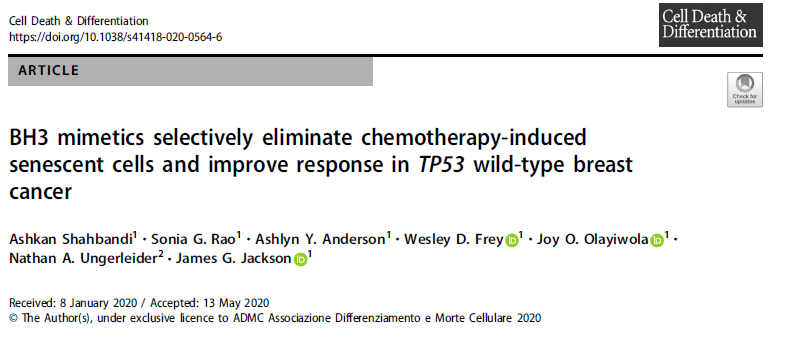 @nresearchnews @cddpress1/" title="Congrats to @Thesrao and @ashkanshahbandi for a lot of hard work and equal 1st author contribution to our recently published paper https://rdcu.be/b4pS4&quo... href="https://twitter.com/nresearchnews">@nresearchnews @cddpress1/" class="img-responsive" style="max-width:100%;"/>
@nresearchnews @cddpress1/" title="Congrats to @Thesrao and @ashkanshahbandi for a lot of hard work and equal 1st author contribution to our recently published paper https://rdcu.be/b4pS4&quo... href="https://twitter.com/nresearchnews">@nresearchnews @cddpress1/" class="img-responsive" style="max-width:100%;"/>
